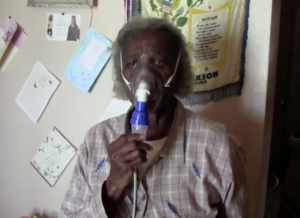 I have worked in all forms of media over the past 30 years—broadcast television, radio, print and online—but there is one powerful element they have common: the story of people. As an environmental reporter and producer working in the field, I know there is nothing more impactful than telling stories of those struggling with natural and human-caused hardships. The fishermen, the farmers, the residents battling refinery pollution and bureaucracies. From the boreal forests of northern Alberta to the polluted refineries of the Gulf of Mexico, I have seen their story-telling power resonate with people all over the world.
I have worked in all forms of media over the past 30 years—broadcast television, radio, print and online—but there is one powerful element they have common: the story of people. As an environmental reporter and producer working in the field, I know there is nothing more impactful than telling stories of those struggling with natural and human-caused hardships. The fishermen, the farmers, the residents battling refinery pollution and bureaucracies. From the boreal forests of northern Alberta to the polluted refineries of the Gulf of Mexico, I have seen their story-telling power resonate with people all over the world.
Yet when it comes to communicating about science and climate change, we often are not telling those stories very well. Local newspaper cutbacks and the rise of cable punditry has turned off many Americans who tire of people yelling at each other. The election of Donald Trump should be a lesson to us all. The media missed the outrage of ordinary folks, the seething anger with those in powerful political positions and places. The most important voices come from people who experience first-hand what is going on in the world. We need to hear less from the NGO heads in DC and New York and hear more from people on the ground instead. And we need more of the personal stories of the scientists and experts who are leading the efforts to fight climate change, the compelling narratives that we can all relate to.
We have the technology and tools to make it happen, and it does not take a lot of money to produce multimedia stories in the field. Cheaper cameras and editing make quick video stories more doable, and short blogs that accompany them can drive new readership. Social media thrives on visuals from the field, yet I find it rarely done in a way that’s compelling and distinct. I have done it on a shoestring for NRDC and The Huffington Post, and I plan to do it again as we enter a new election in 2018. The environmental community can profit from more journalistic reporting on the ground. These are visual and compassionate stories that can change the world.
Politics is local, and so are the stories that move people’s hearts and minds. We need more of these voices to galvanize a movement to action. Join me and tell your story.